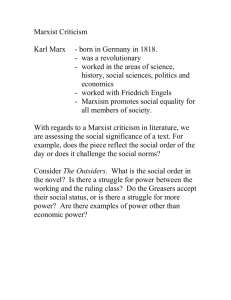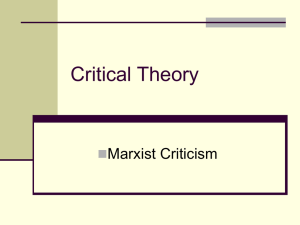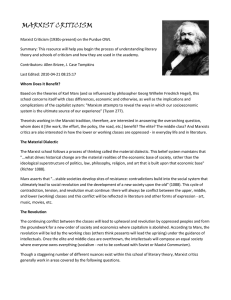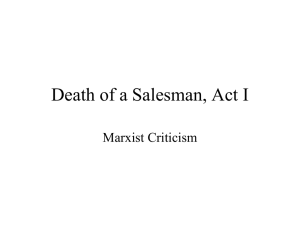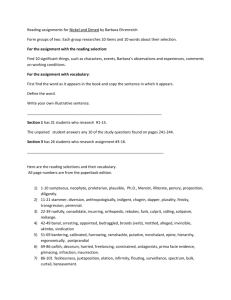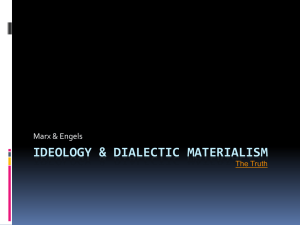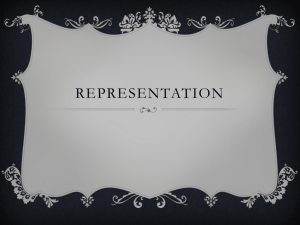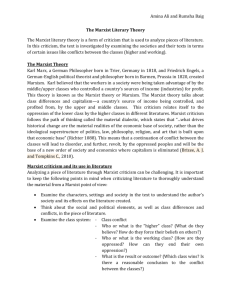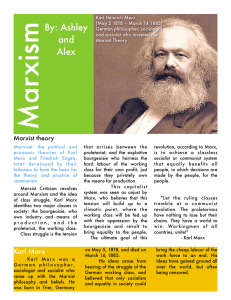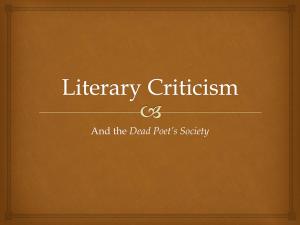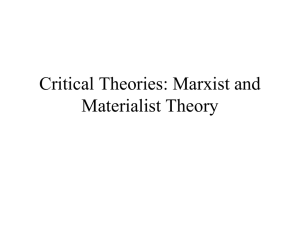File
advertisement
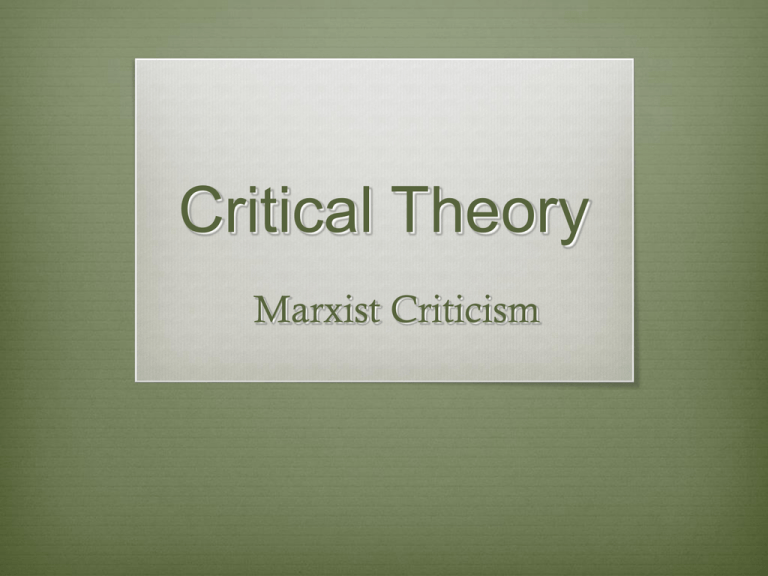
Critical Theory Marxist Criticism Economic Determinist/Marxist Criticism Karl Marx (1818-1883) emphasized that the primary influence on life was economic And he saw society as an opposition between the capitalists and the working class Marxist Criticism Emphasize the role of class (social and economic standing) and ideology (main underlying principles) as they reflect, promote, and sometimes challenge the prevailing social order. Focus how those in power seek to maintain that power, in part by justifying it through art and literature Focus on the struggle that exists between the working class and the ruling (elite) class. Economic Determinist/Marxist Criticism The literature that emerged from this kind of analysis focuses on individuals in the grips of a class struggle. It emphasizes persons of the lower class and their constant oppression by the upper class. The poor may try to escape their situation but ultimately fall back under the ruthless dominion of the capitalist oppressor. Marxism and Hegemony These critics also examined how a controlling class convinces the working class that their way of life is in their best interest? The art of Soviet Russia reflected Marxist ideology. Theorists working in the Marxist tradition, therefore, are interested in answering the overarching question, whom does it [the work, the effort, the policy, the road, etc.] benefit? The elite? The middle class? And Marxists critics are also interested in how the lower or working classes are oppressed - in everyday life and in literature. Soviet Worker More Workers Battle Then and Now Strong Worker Anti-American Propaganda Economic Determinist/Marxist Criticism Although implemented to a great degree in Soviet Russia (and to a lesser degree in other countries), Marx’s political ideas were never widely accepted in the United States. The idea of economic determinism is still considered credible. Material Dialectic Marx asserts that "...stable societies develop sites of resistance: contradictions build into the social system that ultimately lead to social revolution and the development of a new society upon the old" (1088). This cycle of contradiction, tension, and revolution must continue: there will always be conflict between the upper, middle, and lower (working) classes and this conflict will be reflected in literature and other forms of expression - art, music, movies, etc. Economic Determinist/Marxist Critical Questions Whom does it benefit if the work or effort is accepted/successful/believed, etc.? What is the social class of the author? Which class does the work claim to represent? What values does it reinforce? What values does it subvert? What conflict can be seen between the values the work champions and those it portrays? What social classes do the characters represent? How do characters from different classes interact or conflict? Resources Karl Marx - (with Friedrich Engels) The Communist Manifesto, 1848;; Das Kapital, 1867;; "Consciousness Derived from Material Conditions" from The German Ideology, 1932;; "On Greek Art in Its Time" from A Contribution to the Critique of Political Economy, 1859 Leon Trotsky - "Literature and Revolution," 1923 Georg Lukács - "The Ideology of Modernism," 1956 Walter Benjamin - "The Work of Art in the Age of Mechanical Reproduction," 1936 Theodor W. Adorno Louis Althusser - Reading Capital, 1965 Terry Eagleton - Marxism and Literary Criticism, Criticism and Ideology, 1976 Frederic Jameson - Marxism and Form, The Political Unconscious, 1971 Jürgen Habermas - The Philosophical Discourse of Modernity, 1990
